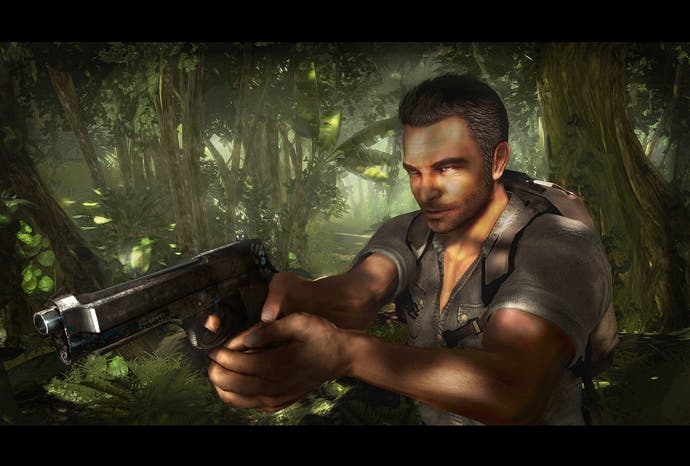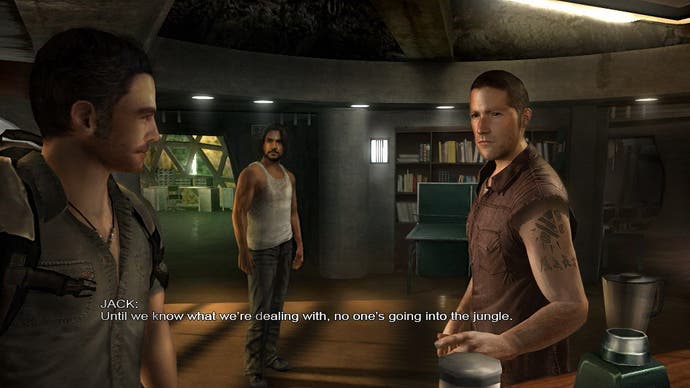Lost
Don't tell it what it can and can't do.
Lost, as you undoubtedly know if you've peered out from underneath that rock in the last couple of years, starts with a bloody big plane crash - and if we're being totally honest, it's probably fair to say that you're here in the hopes of rubbernecking at yet another hideous crash.
You're not reading a preview of the Lost videogame because you genuinely have your hopes up for the game, any more than you watch news reports about Britney Spears because you genuinely hope she's sorted her life out. You're here for the disaster. You're here hoping we'll come up with a handful of amusing, politically incorrect ways to describe this game as a pile of poo, which you can chuckle at and move on.
To you then, dear reader, heartfelt apologies, because today's regularly scheduled sarcasm and ranting has been cancelled. Don't blame us - blame Ubisoft, into whose hands fell the task of crafting a videogame from a TV franchise many people thought to have jumped the shark about a year ago. It should, by all the unspoken yet intractable laws which govern game development, be awful in every regard. It's not. From the dripping, grinning jaws of abject defeat, Ubisoft has snatched - well, if not victory, then at least respectability. Colour us as surprised as we are impressed.
Mislaid

Rather than simply retelling the events of the TV series, Lost opts to tell the story of an entirely new castaway - a passenger on the ill-fated flight who wakes up in the jungle along with everyone else, and has his own pathway through the story of the show. The story of the game covers the first two seasons of the series (with certain landmarks, such as the Flame Station, from Season 3 - "when we were making the game, they were just starting to film season three," explains the game's producer) but tells an entirely new story that only crosses over with the antics of the central characters at key points.
At first glance, it's tempting to dismiss the whole game as a collection of mini-games, albeit a collection of mini-games with astonishingly high production values. There are sections where you navigate through the jungle following markers, sections where you run along a forest path away from the Black Smoke, tapping jump and crouch buttons to avoid obstacles, sections where you navigate a dark cave by a pool of torchlight. Each of them is well-crafted and features lovely visuals, but each of them is, at heart, a mini-game.
In this instance, though, the whole appears to be rather more than the sum of its parts. Consider Lost as a more complete game, and a rather different genre emerges - the distinctly old-school adventure game, complete with inventory, puzzles and dialogue, but given a next-gen lick of paint, a huge TV franchise and occasional action sections. But didn't these die out years ago? Has Ubisoft really been compelled to make an authentic, high-budget adventure game with this franchise?

"Absolutely," we're told with a grin, "because Lost is an adventure! It's about an adventure through yourself, about looking into yourself, and it's also about an adventure that you play on the island. At Ubisoft, we're well known for making shooter games, and we had the choice to do that - but if you take guns out of Lost, it's still Lost.
"If you think in terms of adventure, shooting and story, if you were to take out the shooting and leave the adventure and the story, you'd still have Lost. We really wanted to reflect that aspect, and we really wanted to cater to mass-market gamers - and we felt that first-person shooters wouldn't do that. Lost is a story-driven survival adventure game."


